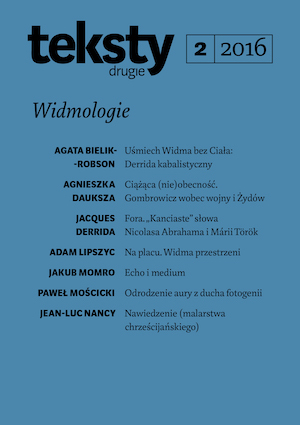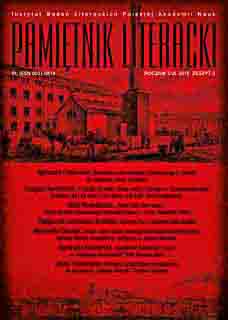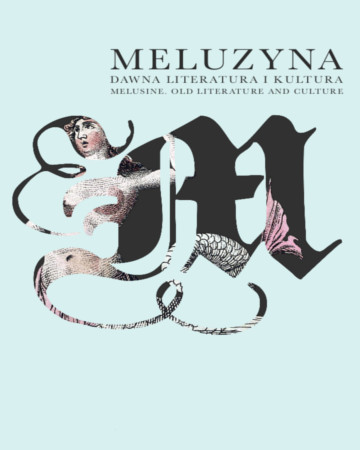
Second Texts
Teksty Drugie
Teksty Drugie. Teoria literatury, krytyka, interpretacja[Second Texts: Literary Theory, Criticism, and Interpretation] is a bimonthly journal of literary scholarship. It has been published since 1990 at the Institute of Literary Research of the Polish Academy of Sciences in collaboration with the Association ‘Pro Cultura Litteraria’. Teksty Drugie is dedicated above all to literary scholarship, theory, and criticism, but the journal also reaches out into related academic fields, creating a platform for interdisciplinary debates in contemporary humanities. The journal specializes in monographic issues that focus on current discussions in literary scholarship, language, and culture, but also philosophy, aesthetics, cultural and literary anthropology, gender and postcolonial studies. Since its foundation in 1990, Teksty Drugie has invited academics of the highest renown to publish on the same terms as early career researchers and students. Polish literary scholarship appears alongside research by international scholars of Polish or Slavic literatures. Finally, Teksty Drugie brings together leading academics from a variety of specializations, such as philology, philosophy, anthropology, cultural studies, sociology, history, art history, and so on The specialty of Teksty Drugie is to publish monographic issues dedicated to one single theme. These themes need not belong to the area of ‘literary theory, criticism, and interpretation’ – they often touch on current problems in the humanities at large. Monographic issues present debates in their wider contexts, and bring together research from related disciplines (such as philology, anthropology, philosophy, or art. In the field of literary theory, issues have focussed on current trends in literary theory and the humanities, as well as a broad range of problems in contemporary literary . A key element in each issue is the short introductory article. These introductions present the leading problem of each issue from a personal perspective. In multi-thematic issues the editor may discuss the diversity of opinions within the current issue in the context of contradictions in contemporary thought in general; they may weave their own reflections around one of the issue’s themes, contemplate some current debate not directly related to the issue, record their private meditations, humoristic observations, or provocations. The articles in the section Szkice [Essays] usually pertain to the issue’s leading theme or problem. The section Roztrząsania i rozbiory [Discussions and Analyses] contains book reviews (broader discussions of international publications are presented in the section Komentarze [Commentaries]. The section Przechadzki [Wanderings] appears every once in a while, uniting relatively short feuilleton-like articles that are more loosely related to the issue’s leading theme. Another key section is Prezentacje [Presentations], which assembles, in translation, the work of international writers whose impact on contemporary humanities is most significant Further key sections are Świadectwa [Testimonies], a space to present newly discovered biographical materials, and Archiwalia [Archive], the section where scholars may publish the correspondence of writers and poets, or writers’ inedita.The remaining sections, such as Opinie [Opinions] and Interpretacje [Interpretations], appear irregularly.
More...

